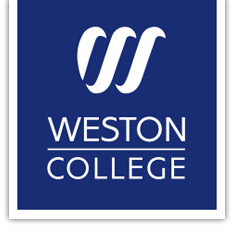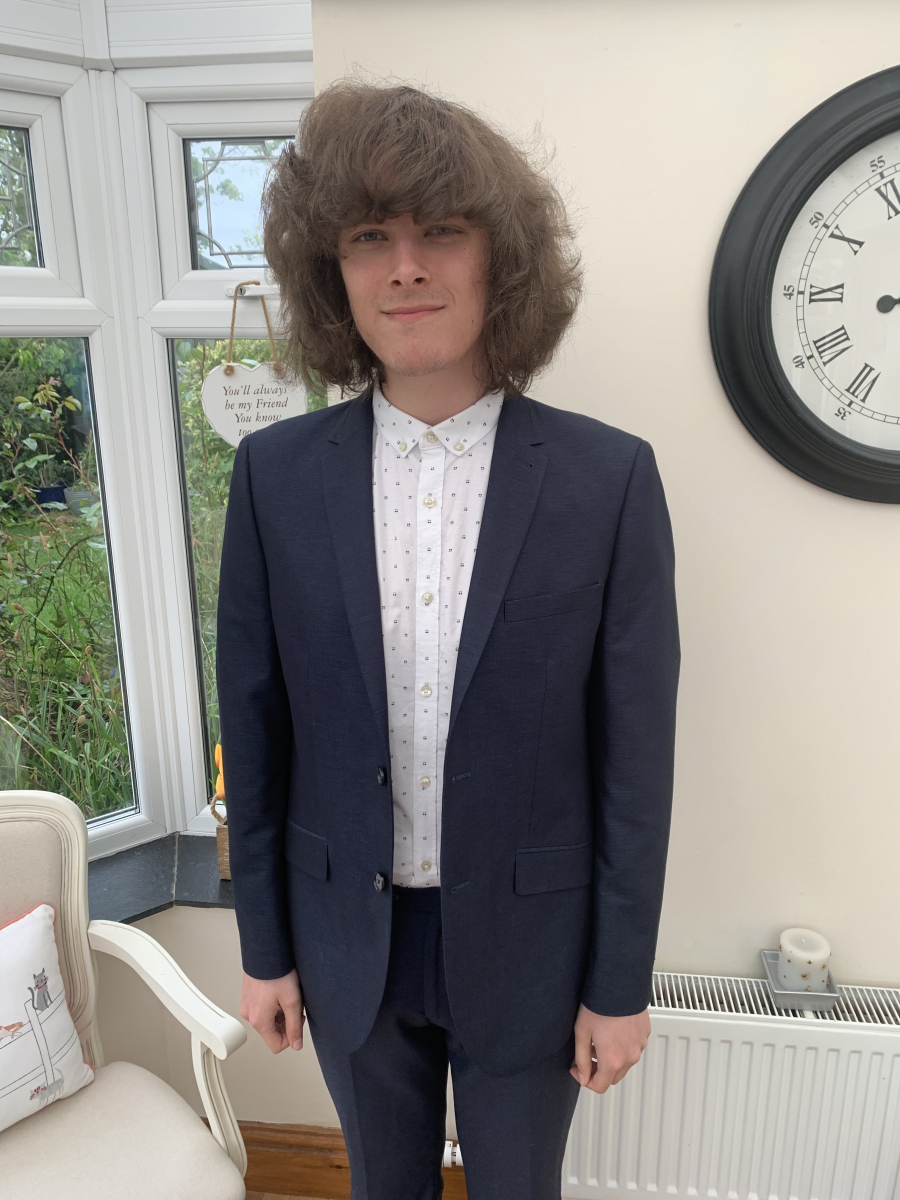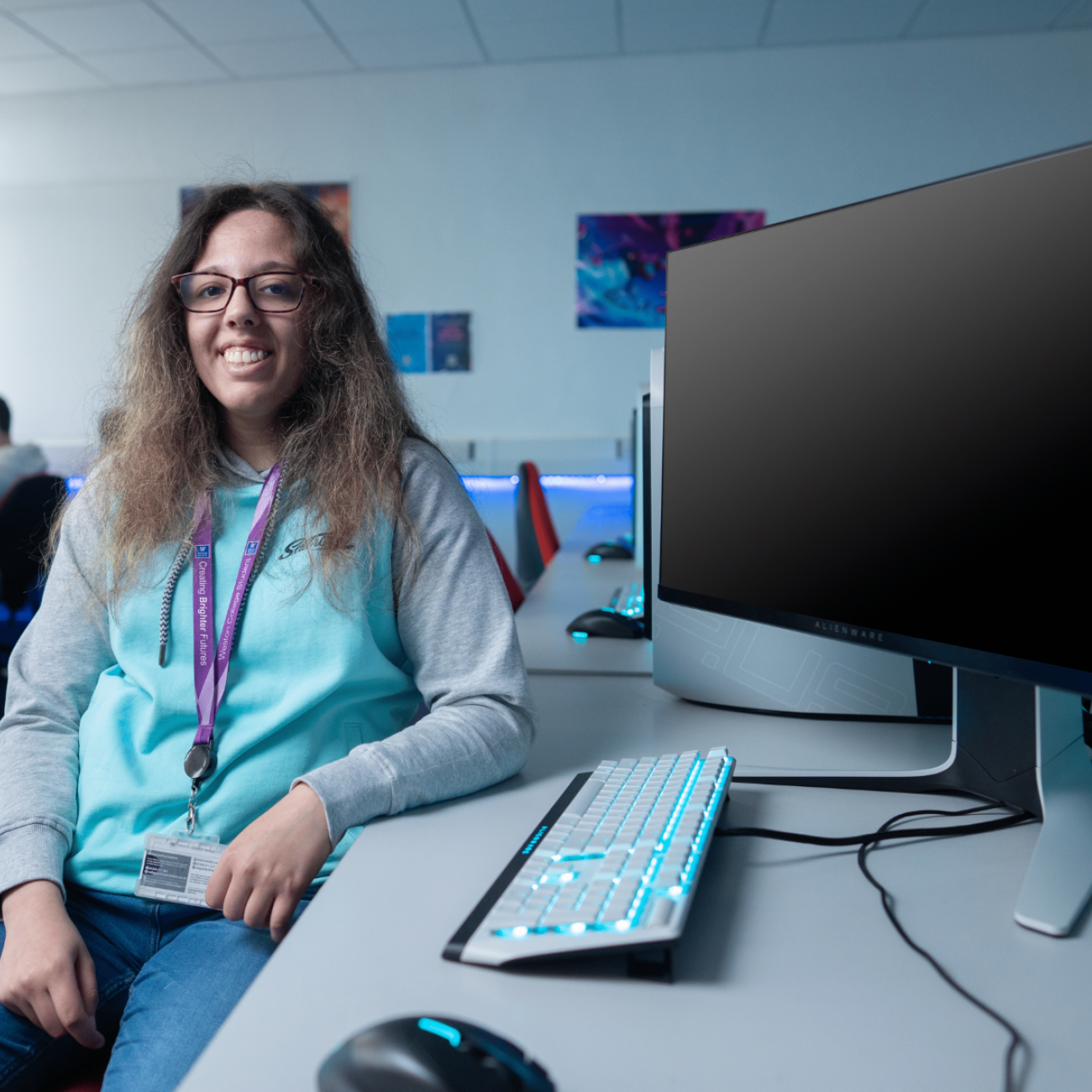
Level 3 to Masters Degree - Computing Learner Jack Accepted onto Health Data Science Masters
Whether it’s going into the world of work or continuing their study, we love seeing learners progress to achieve towards successful careers!
Jack, who currently studies BSc Applied Computing (Hons), has just been accepted into a Masters degree in Health Data Science with the University of Exeter!
We caught up with Jack to tell us more about his progression journey from Level 3 through his degree…
After finishing at Kings of Wessex school, I studied the Level 3 BTEC Extended Diploma in Computing at Weston College (now replaced with Level 3 Digital T Level). I wasn’t completely sure about studying Computing at the time, but after previewing the modules and talking with the staff involved, I was sold, and have never looked back since!
The BTEC course allowed me to expand upon the material I learned in GCSE Computing, and since there were lots of units in different areas of computing, I was able to develop my understanding and ability in lots of areas, as well as narrow down the field that I wanted to go into after I graduated.
Healthcare has been behind on technology for a long time, you just need to look at the WannaCry attacks for evidence of that. However with the governments NHS Long Term Plan, put into place in 2019, the usage of technology within the NHS has increased, and the opportunity to use the rapid developments of data science and AI within healthcare has become apparent.
The field of data science is about utilising data that has been collected and finding meaningful results from the processing of it. This is how AI are developed also, as data is “fed” to an AI, which allows it to make predictions about the future. An example of this is when Cambridge developed an AI that predicts whether COVID-19 patients would need an ICU bed within a weeks’ time.
The course I am planning on studying is split into two main parts, the data science modules, and the Healthcare modules. This is because, even if you have comprehensive knowledge of data science and computing, you won’t be able to fully apply that knowledge unless you understand the field in which you are applying it. This course is setup to allow students from both computing and healthcare sides to develop their knowledge on the side they are lacking, and therefore allow them to develop the skills they will need to use within the industry.
I applied for two courses, one in Bristol and one in Exeter. With the Exeter course, you needed to complete a Python exam, which tested your basic programming ability. This was to ensure that you had the necessary programming ability that was needed within the course. Having learnt this at UCW, I got 100% on this exam. As well as this, I am required to graduate with at least a 2-1 in my Bachelor’s Degree.
With Bristol, I was required to attend an interview, where they asked me about my motivations for joining the course, as well as a bit on my background. I passed this interview and am required to graduate with at least a 2-1 in my Bachelor’s Degree as well.
I am feeling confident that I will be able to complete the Master’s degree in the course I select, as the skills and support that I have been provided from my time at UCW/Weston College have set me up to succeed at my next course. As well as this, I feel that I am well prepared in terms of academic ability for this course and feel that I will be able to excel.
I was incredibly humbled to have been offered places at both Universities but one of the reasons I decided to select the course at Exeter was due to the project you complete at the end of the year. I would like to perform research in this ground-breaking field, and the course at Exeter University gives me an opportunity to partner with a company in the field and perform research on a topic of my choice. I think that this, as well as the modules in my course will set me up for a job when I graduate from the course.
I would very much like to perform some research within this industry, as I feel my contributions to this industry would assist in the digital revolution that healthcare is beginning to go through. Although alongside my passion for the industry is my love of education, and I would very much like to take part in the education of the next generation of health data scientists.
I think what most excites me about this industry is the immense impact that it will have on the future of healthcare. It has already begun to have an effect, with assisted elderly care, IoT pacemakers, and even AI being used to predict patient outcomes and treatment options.
Yet, this is only the beginning, 10 years from now doctors might be able to see twice as many patients, due to technology being able to document patient cases faster, or AI could be used to assist in clinical trials for new medicine. Being a part of this and being able to assist in the better treatment of patients is what I am most excited about.
I have no doubts that this industry will continue to grow, as the benefits of using data science and AI within healthcare will become more apparent. The need for individuals with a background on data science specific to healthcare is rapidly increasing, as it’s vital that researchers within this area have a fundamental understanding of how this could affect the industry and patient care.
Since health data is becoming more widely available, due to anonymization of sensitive data preventing it from being tracked back to the specific individuals, the research performed using this data can only increase in importance and relevance. By allowing more effective and efficient research to take place, we can develop a better understanding of diseases, what treatments are most effective, and more.
At the time, I had various offers from different universities, including UWE and Bristol, but there were several reasons I decided to choose UCW over them. I had developed a close relationship with the staff that would be teaching the Bachelor’s Degree programme, and the style of teaching allowed me a generous level of support.
As well as this, I personally find exams very stressful, and much prefer the style of continuous assessment that is employed by Weston College and UCW. Lastly, I felt that the units that are taught aligned well with what I wanted to learn at the time, as I was particularly interested in software development, so having multiple units on it piqued my interest.
There’s been so much that I’ve learnt and done, and I’ve been able to push myself above and beyond what I thought was possible.
The first year was a bit of a transition. We had to learn what academic referencing required, as well as how to properly research and create work of a much higher quality than in A or T levels. We had some introductory units that helped everyone catch up to a similar level, whilst still being able to push students who were already ahead.
The second year was definitely more intense, as we had 6 units instead of 4 in year 1. It was definitely the good kind though, as it felt like we really explored the main areas of computing, and we got to write some academic reports and do some very interesting practical sessions, for example how to hack into a computer for the cyber security unit. My favourite units so far though? Probably the units on object-oriented programming.
This year has been the most challenging of them all, as expected of course. It’s felt like we had a lot more freedom this year though, as the projects we completed allowed us to further explore each area fully, and really test our work ethic and computational abilities. We’ve had excellent support throughout this process, and I feel that I’ve been able to develop my computational knowledge to the next level.
There are various methods that UCW use to help support students. I think one of the most important ways that they support you is through the HEART team, where they ensure students are being looked after, and even help you find a job after you graduate. This is vital, as even if you know how to work in the industry, you may not be able to find a job if you don’t know how to write a CV, or how to find the jobs you should be applying for.
We’ve also had guest lectures from Benedict van der Linde, who talked about interview techniques, and helped introduce us to methods to showcase our experience within the industry to interviewers. He helped me proof-read and improve my personal statement to the universities I applied to, which really helped, as I got offers from all universities I applied to.
Lastly, but definitely not least, our lecturers maintain a constant level of support in and out of lectures. If you need help, no question is out of bounds, and I think that is really important. A classmate actually moved to UCW from another university and expressed that the level of support that the students receive from our lecturers is far better than what he had previously experienced, and I am really thankful to all my lecturers for maintaining constant contact and being willing to answer any questions or give advice to all their students.
There are many people, but I’ll try to keep it as short as possible. Jason Hill is definitely number one, as he was the person who discussed joining the course with my brother, which is what got me interested in the first place. Having a level of support from a lecturer like him, who we trust and are supported by, really helped us settle into UCW, and massively improved our experience.
As well as Jason, I’d like to thank Sean Shearing, who unfortunately is moving away from teaching students directly, but perhaps for the benefit of the course as a whole, since he is now able to make more direct changes and improvements to the curriculum with his new position as Catalyst Lead. Sean made programming more interesting for me personally, and I feel my passion for it stems from him.
Joe Abdulgani has been exceptionally supportive throughout the course, and I’d like to thank him for providing me with an excellent reference, as well as being an exceptional lecturer!
Lastly, my family, classmates, and my twin brother Sam, who has been with me throughout the course. It’s been great to have a positive atmosphere inside and outside of class, and I feel that I have grown immensely.
Thank-you so much to Jack for taking the time to talk about his journey. We wish him all the best with his future studies and successful career ahead – Can’t wait to hear as his career flourishes!
Want to learn more about studying a computing degree in Weston-super-Mare? Click here to discover the BSc Applied Computer and more digital degrees


